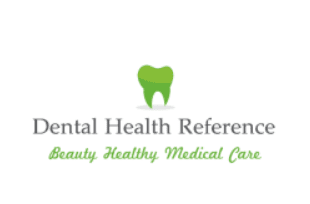
Your dental health is a vital aspect of your overall well-being, influenced not only by daily hygiene practices but also by the nutrients you consume. Deficiencies in certain vitamins and minerals can lead to a range of dental issues, often presenting subtle symptoms before more serious problems arise. Understanding these deficiencies and their effects on your teeth can help you take proactive steps to maintain a healthy smile.
Vitamin D Deficiency
Vitamin D plays a crucial role in calcium absorption, essential for strong teeth and bones. A lack of vitamin D can result in weakened enamel, making teeth more susceptible to cavities and fractures. Additionally, inadequate vitamin D levels may lead to periodontal disease, characterized by swollen gums and eventual tooth loss. Ensuring sufficient sunlight exposure and incorporating vitamin D-rich foods as recommended by dentist Broadway into your diet can mitigate these risks.
Calcium Deficiency
Calcium is fundamental for maintaining the structural integrity of teeth. When calcium levels are low, enamel erosion becomes a significant concern, leading to increased tooth sensitivity and a higher likelihood of decay. Children with calcium deficiencies may experience delayed tooth development, while adults might notice thinning of the enamel and increased wear over time. Dairy products, leafy greens, and fortified foods are excellent sources to support adequate calcium intake according to dentist in Broadway reservoir.
Vitamin C Deficiency
Vitamin C is essential for healthy gums, as it aids in the production of collagen, a protein that strengthens gum tissue. A deficiency in vitamin C can lead to gum inflammation, bleeding, and a condition known as scurvy, which manifests through swollen, bleeding gums and loose teeth. Incorporating citrus fruits, strawberries, and bell peppers into your meals can help maintain optimal vitamin C levels and promote gum health as recommended by cosmetic dentist in Broadway.
Iron Deficiency
Iron deficiency, or anaemia, can have a noticeable impact on oral health. One of the primary symptoms is a pale appearance of the gums and the inner cheeks, but it can also lead to increased susceptibility to infections and slower healing of oral tissues. Additionally, iron deficiency may cause burning sensations in the tongue and general oral discomfort. Consuming iron-rich foods like red meat, beans, and spinach can support both overall health and dental well-being.
Vitamin A Deficiency
Vitamin A is vital for the maintenance of mucous membranes and saliva production, which protect teeth from decay and infection. A deficiency can result in dry mouth, increasing the risk of cavities and gum disease due to reduced saliva flow. Moreover, inadequate vitamin A levels can impair the body’s ability to repair and regenerate oral tissues, leading to more severe dental issues over time. Including foods such as carrots, sweet potatoes, and dark leafy greens can help sustain adequate vitamin A levels.
Magnesium Deficiency
Magnesium works in tandem with calcium to build and maintain strong tooth enamel. A shortage of magnesium can disrupt this balance, leading to enamel weakness and increased vulnerability to decay and damage. Symptoms of magnesium deficiency related to dental health include toothache, sensitivity, and a higher incidence of cavities. Nuts, whole grains, and legumes are excellent sources of magnesium to support your dental structure.
Seeking Professional Guidance
Addressing vitamin and mineral deficiencies is essential for maintaining dental health, but it can be challenging to identify and manage these gaps on your own. Regular consultations with a Broadway dental clinic can help detect early signs of nutrient-related dental issues. A Broadway dentist can provide tailored advice, recommend dietary adjustments, and suggest supplements if necessary to ensure your teeth remain strong and healthy.
Conclusion
Nutrient deficiencies can subtly undermine your dental health, leading to a range of issues from weakened enamel to gum disease. By recognising the signs of vitamin and mineral shortages and taking proactive measures to address them, you can protect your teeth and maintain a vibrant smile. Regular visits to a Broadway dental professional, combined with a balanced diet rich in essential nutrients, are key to sustaining optimal oral health.
